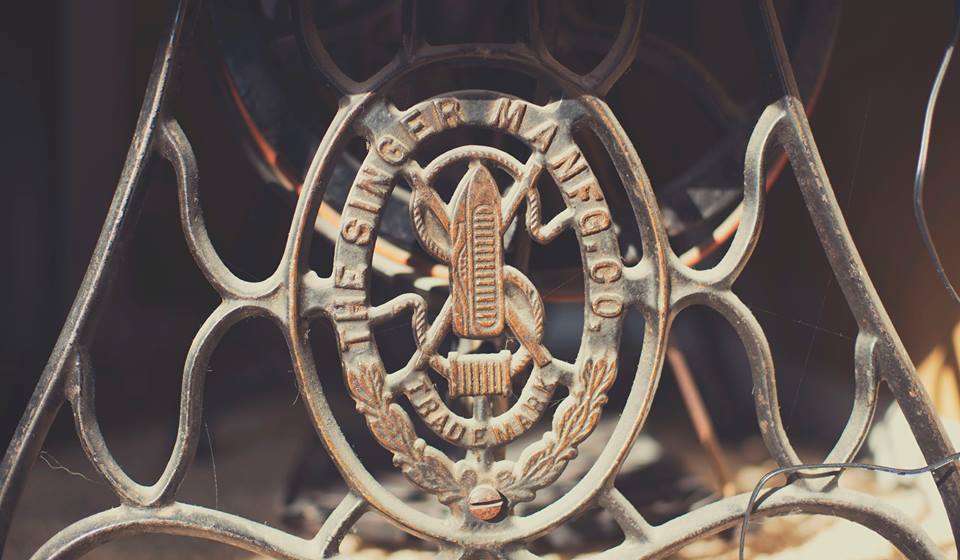Maybe it’s the Midwestern sensibility. Maybe it’s the cool junk. Whatever it is, I’ve always had a soft spot for “American Pickers.” As I watched an episode recently, it got me thinking about what a great display of empathy always exists in that show. Different from other reality shows about people’s junk, there always seems to be a kindness present and a respect for someone’s story. It got me thinking. So here’s a little primer in how to be an empathetic person, courtesy of Mike Wolfe and Frank Fritz.
(If you haven’t seen the show, Mike and Frank drive around in a van, looking for people who have accumulated a lot of junk. They will look through their junk and make offers on pieces they think they can sell at their store Antique Archaeology. I don’t know what these guys are like in their actual lives, so I’m talking about what we see on the show, not necessarily anything more than that.)
See the potential. Where the rest of us might just see garbage, Mike and Frank see “rusty gold.” Having empathy means looking at the wounded among us and recognizing that even what looks like trash can have immense value. Those broken parts of our story make us who we are and have value. Our imperfections are part of us, but they don’t define us. We need people in our life who can see beyond our flaws.
Be curious. Being empathetic means learning how to ask good, gentle questions. Mike and Frank are masters at just being joyfully curious. They seem genuinely interested in the stories behind the objects even if that story doesn’t get them to a sale. People are willing to tell them things they might not tell others because of the disarming nature of their curiosity.
Honor someone’s story. When they hear the stories behind the objects, there often seems to be a follow up comment or question about the relationships and memories involved. They don’t jump right into offering money, but acknowledge the value inherent in the story. They listen with the intent of learning, not just to try and make a deal.
Be fair. There are times when you see they could offer less money for something because the collector didn’t know they had a treasure on their hands, but Mike and Fritz will offer what they believe is fair. I think we have to keep fairness principles in mind when we’re listening to the hard stories of someone. There are people who have been wounded to the point that they no longer have appropriate boundaries around their story. We don’t need to be pain voyeurs, just getting some kind of perverse joy from hearing someone else’s suffering. It is on us to be fair with their stories, to treat them with dignity and to have appropriate boundaries even if someone doesn’t ask for them.
Know what you can and can’t do. I love that Mike and Frank always seem to have clear boundaries. There’s no guilt-tripping. They don’t make promises they can’t keep. If someone needs something from them that they can’t give, they respectfully walk away. There’s always honesty and understanding. When we’re involved with hurting people and their stories, we’ve got to know what we can offer and how we can help. We also need to know what we CAN’T offer and when we CAN’T help. We need to communicate those boundaries with honesty and understanding. We need to be willing to make the tough decision and walk away if things become toxic or there are expectations of you and your ability to help that you can’t possibly fulfill. Know when to refer someone on to more help while you continue to offer the help you can.
Be understanding when someone doesn’t want want to deal. If someone isn’t ready, they aren’t ready. They might be ready later, but today you’ve got to respect their desire to not have to share what they aren’t ready to share. This is not a time for making it about you. No pouting or pressure, just respect their boundaries and be honest about your own.
In the episode I watched recently, Mike was explaining how they often end up with valuable objects collectors weren’t previously willing to sell. He said, “We asked.” That felt simply profound to me. We may have lots of hurting people around us and we wonder why they aren’t open with us or others before us. Why they aren’t sharing? But have we asked? Have we pursued them and their stories with dignity? Are we confident in our boundaries so others can be confident we won’t take on more than we can handle?
When faced with someone else’s junk, garbage or baggage, I think we need to take an American Pickers perspective. We need to be curious about it, honor it, value it, and know what we have to offer. I think that’s empathy, Pickers style.

